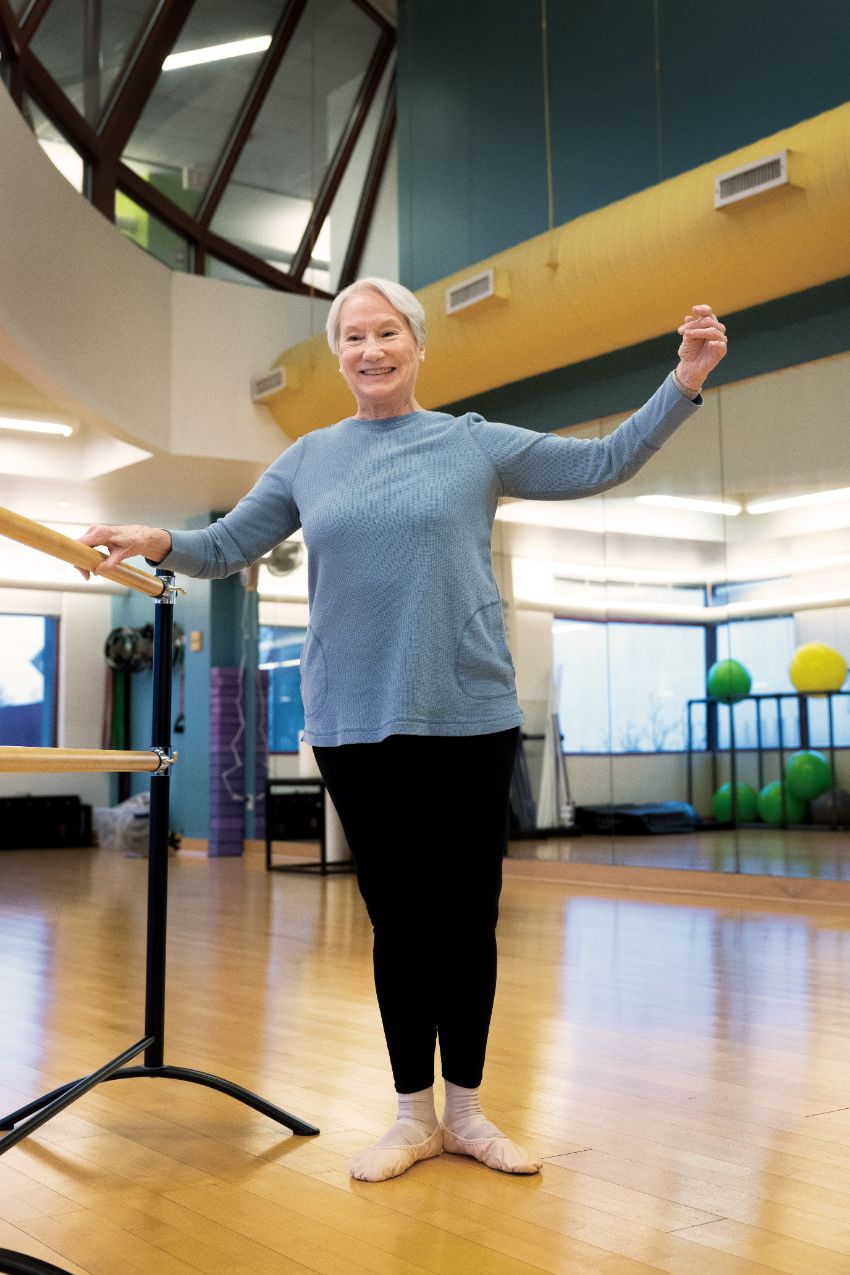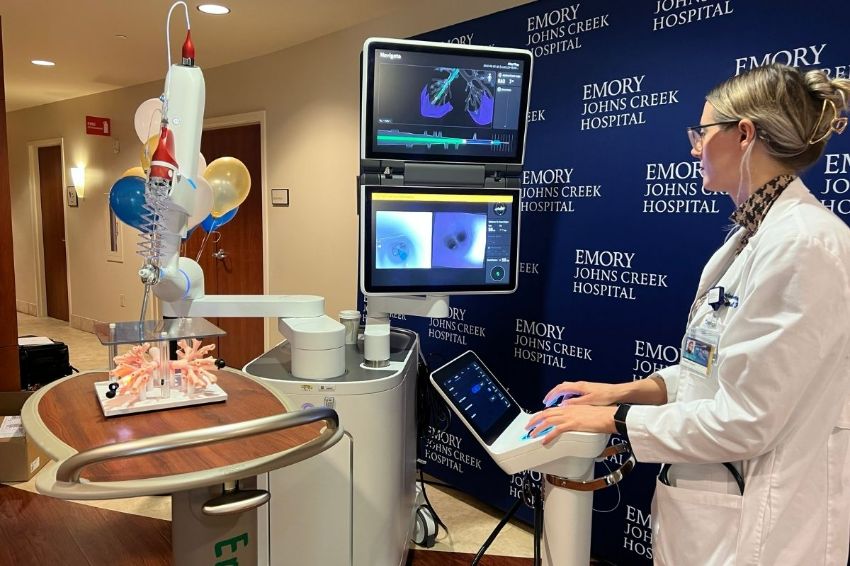Total knee replacement is one of the most successful procedures in all of medicine, with more than 700,000 performed each year in the U.S., according to the American Academy of Orthopaedic Surgeons. Now, robotic-assisted technology is bringing a new level of precision to the operating room, leading to improved patient outcomes with less pain and faster recovery.
At Emory Johns Creek Hospital, orthopaedic surgeons have performed more than 1,000 robotic-assisted knee replacements using Mako SmartRobotics. A 3D model of the patient’s knee is created from a CT scan taken before surgery, allowing surgeons to plan the ideal implant placement to within millimeters.
“Robotic-assisted surgery adds precision, accuracy, and consistency to the operating room,” says Oren Goltzer, MD, an orthopaedic surgeon at Emory Johns Creek Hospital and assistant professor at Emory University School of Medicine. “The robot sets boundaries that help guide the surgeon’s movements during surgery. It won’t allow cuts outside the planned area, which enhances accuracy and protects nearby soft tissues.”




